Discover the new coffee styles that are going to take over the world of coffee in 2019. Revitalize your menu with new coffees, from cold brews to chemex.
2019 Coffee Trends: The Cold Brew Revolution
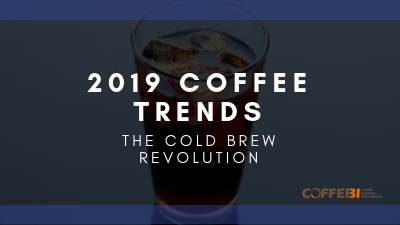

Discover the new coffee styles that are going to take over the world of coffee in 2019. Revitalize your menu with new coffees, from cold brews to chemex.
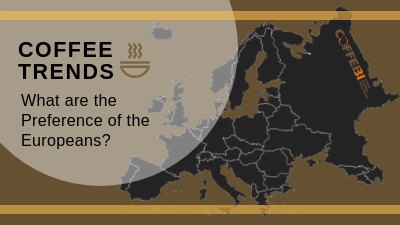
The European market is a highly knowledgeable one, but most European coffee consumers cannot tell the quality difference in products. So, where are consumers driving their preferences?

China continues to be one of the largest growing markets for the coffee shop industry. But what is the secret of its new coffee business model?
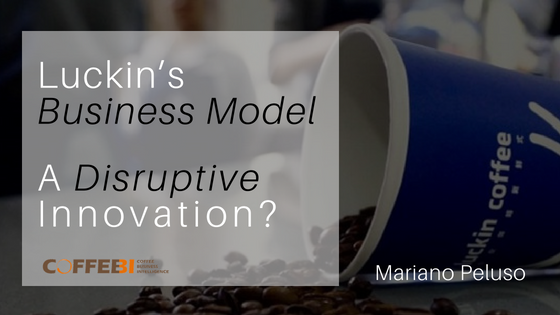
In China, some market conditions are different. A low number of coffee shops compared to the population, especially in large towns, and the boost in coffee consumption (at two-digits) in particular out of home.
The hot coffee delivery is, therefore, a new opportunity to satisfy the large coffee demand.
At the moment, there is no available data to see if the delivery system will be appreciated by customers, the fact is that the giant coffee chain Starbucks is also moving towards signing a partnership with Alibaba, China’s largest online retailer, to launch delivery services in September. The new deal will see Starbucks integrate a “virtual store” in online shopping and payment apps.
The hot coffee delivery model, launched by the Chinese company Luckin, is fueling the debate among operators: May this new model change coffee habits?

As explained by Qian Zhiya, Luckin Coffee founds its business model starting from some weak points of coffee shops in China: high prices and lack of presence. “In western countries, the price of a cup of coffee consists of only 1/1,000 of people’s monthly income. In contrast, it is almost 1/100 for people living in China”. “Also, the number of coffee shops in the mainland is very limited. As opposed to Taiwan, where the population of 23.5 million enjoys over 5,000 CITY CAFE shops (a brand launched by 7-Eleven), there are only 300 Starbucks stores in Beijing, a city populated with 29 million people”. Find out more about Luckin.

According to the National Coffee Association (NCA), the percentage of Americans drinking coffee every day has risen from 57% to 62% over the past year. Now that is quite an impressive increase! Another factor that has caused this increase was the media attention surrounding a study on coffee consumption published in the journal Annals of Internal Medicine in August 2017. It was the largest ever study based on coffee and mortality which involved more than 520,000 people in 10 European countries. The results were quite dumbfounding, as it concluded that drinking more coffee could significantly improve a person’s life expectancy.
So what has caused this surge to happen?
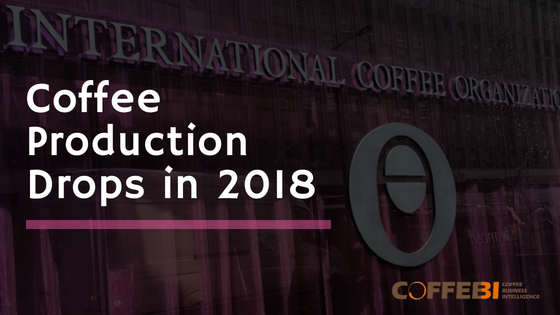
Despite the previous Ico’s previsions, which forecasted an increase in coffee production, according to the recent Ico’s report, in 2018, Global coffee production was estimated at 158.56 million bags, 0.3% lower than 2017. Arabica output is expected to decline by 6.6% to 97.16 million bags Robusta production is predicted to grow by 11.5% to 61.40 million bags In regards to

Weeks ago, I was giving a lecture on the economics of the coffee industry as part of an international business module. At one point, I ended up discussing the so-called ‘waves of coffee’ and how they relate to the way coffee has been viewed, not only as economic goods at the international trade level, but as an object of consumption
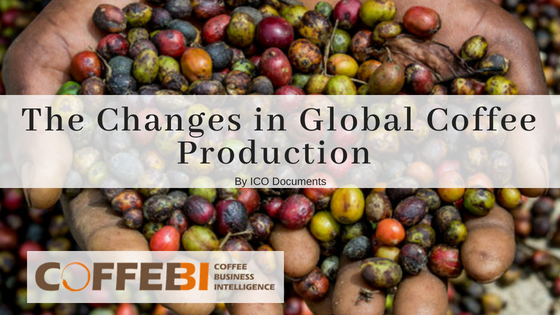
Global coffee production, in 2018, is estimated at 159.66 million bags, 1.2% greater than last year: Production in Africa is estimated as 2% higher, at 17.66 million bags Asia & Oceania, 10% higher, at 49.49 million bags Mexico & Central America, 7.1% higher at 21.92 million bags Regarding coffee prices, in April 2018, the price of all three Arabica groups

The data for the sector was released in Milan for the presentation of the twentieth edition of Venditalia, the most important European event for the sector, scheduled at Fieramilanocity from 6 to 9 June. The event, organized every two years by Venditalia Servizi and promoted by CONFIDA, the Italian Automatic Distribution Association, will be attended by 247 exhibitors from 20